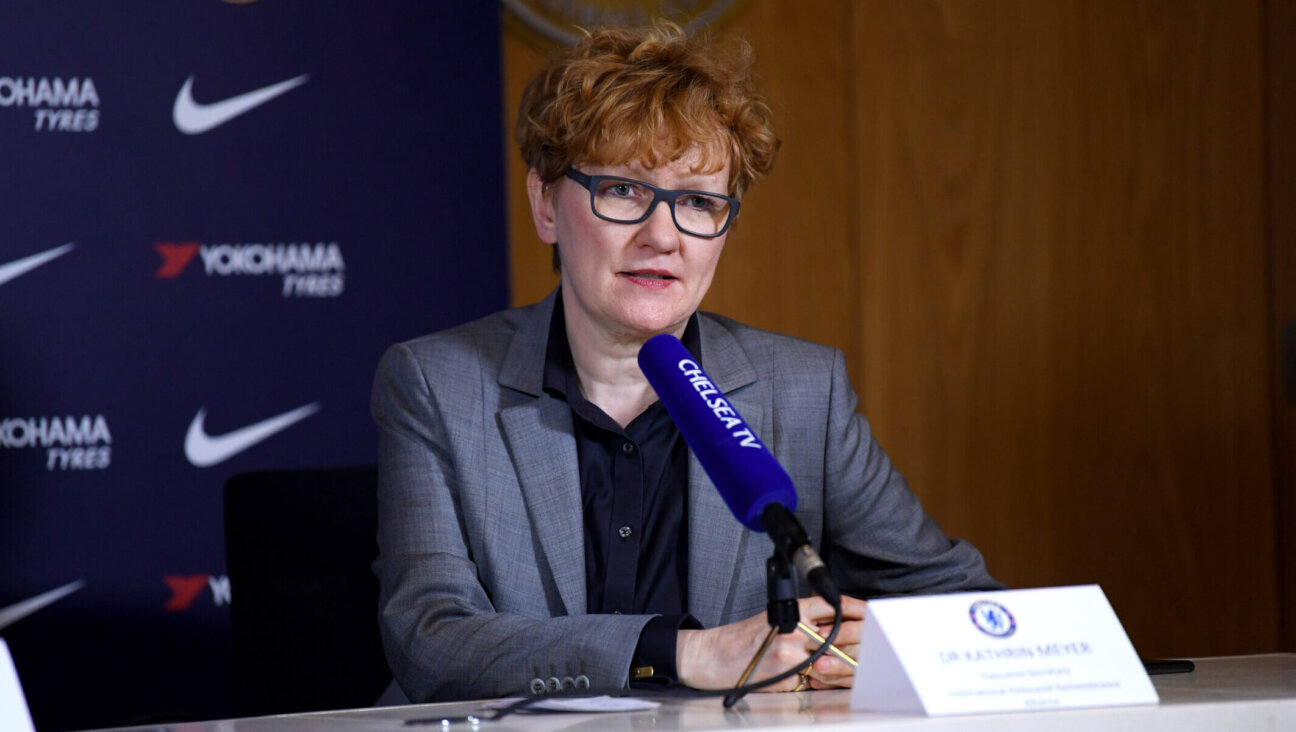You’re in the Army Now
On the first Friday night of July, I attended Sabbath eve services at Kehillat Ra’anan, a Progressive congregation in Ra’anana, Israel. The services — a prelude to the bat mitzvah of my niece Shirah, which was to be celebrated the next day — contained a memorable and moving new ritual, one I had never witnessed before.
As the Kabbalat Shabbat service ended, all the young men and women in the congregation who were about to enter the Israel Defense Forces this month were called up to the bimah. Their parents then were invited to stand up next to their children, and each parent was called upon to offer words of blessing and guidance to their children at this momentous passage. As the young people stood there with their parents, I could not fail to contrast the existential gulf that separates these Israeli teenagers from my own teenage children. After all, the most pressing question to confront my own children at a comparable juncture (and one on which we spend countless hours) is whether they are going to attend UCLA or USC, Wellesley or Barnard, Johns Hopkins or Northwestern — significant decisions, but ones that pale in comparison to those which Israeli families face.
One young woman and her parents, in particular, captured my attention. This young woman and her mother embraced during the entire ceremony. It was hard to believe she would be a soldier in only a few days. Her father said that when the family moved to Israel from Argentina they had done so without asking her permission. Yet she was now being called upon to shoulder ultimate responsibility for their decision. She would now have to engage as a soldier in defense of the Jewish state. Her father asked only that she allow the same Jewish values that had prompted their aliyah to guide her as she fulfilled her duty as a soldier, and he said that she should remember that no unethical act could ever justify even the most moral of ends.
After all the parents finished speaking, the entire congregation joined in prayer for their children. They called upon God and prayed, “May the One who blessed our ancestors, bless these young men and young women. Protect them, our Rock, from all injury and from all evil, and cause peace and harmony to dwell in our land.”
The rabbi of the congregation then spoke. Rabbi Tami Kolberg, a graduate of the Masorti Schechter Institute, has the most tender manner imaginable. She began by saying that she wanted to speak that night not as a rabbi, but as a mother and grandmother. She said she was sorry that there was a need for such a ritual. For 50 years, she had hoped that peace would come and that there would be no need for these young men and women to serve as soldiers. Indeed, she looked at several of the youngest children in attendance and expressed hope that perhaps by the time they completed high school, peace would somehow miraculously have come to the region.
Kolberg said that these young people were entering the army during a time of great apprehension and some extremely cautious optimism — a time that could be called neither peace nor war. She said what all of us present in the congregation and throughout all Israel already know: that the planned disengagement from Gaza casts a shadow upon all of Israel and that what the future holds for the state and its citizens during this summer is uncertain.
Kolberg told these young people that they were now “ambassadors of Judaism,” and she cited the words of the father who had spoken earlier. She reminded them that there was a sure ground of moral values and ethical compassion and concern in Judaism upon which they all could stand. She said that this was the “karka, the genuine soil upon which Judaism is established,” and she asked them to uphold these enduring values as they served in the IDF. Kolberg expressed her love for these young people and added that she was confident that their education had prepared them to understand their obligations as citizen-soldiers of the State of Israel in this light. As Kolberg concluded her words of love and concern for these young men and women, tears and smiles marked the faces of all in the congregation.
Rituals are created to address crucial moments of transition in the course of our life journeys; they help us to mark and move on from one state of being to another. In North America, these rites generally center on birth, bar and bat mitzvahs, weddings and funerals. In Israel, Jewish life has an added dimension of existential depth. The ritual I observed on this Friday night spoke to the gravity of a life passage that is an obligatory and distinctive part of life for Jewish youth in the State of Israel.
Rabbi David Hartman has written, “In the Israeli context, Jewish ideas may touch on life and death issues,” and governmental and personal decisions that are made may well “decide the future existence of one’s own children and grandchildren.” This ritual captured the gravity and depth of his words, and I felt privileged to witness this unique Israeli-Jewish ceremony of passage. May the years pass safely for these young men and women, and may Israel and its neighbors soon know peace.
David Ellenson is president of Hebrew Union College-Jewish Institute of Religion.
To inform us of an upcoming celebration, please write to [email protected].
A message from our Publisher & CEO Rachel Fishman Feddersen

I hope you appreciated this article. Before you go, I’d like to ask you to please support the Forward’s award-winning, nonprofit journalism so that we can be prepared for whatever news 2025 brings.
At a time when other newsrooms are closing or cutting back, the Forward has removed its paywall and invested additional resources to report on the ground from Israel and around the U.S. on the impact of the war, rising antisemitism and polarized discourse.
Readers like you make it all possible. Support our work by becoming a Forward Member and connect with our journalism and your community.
— Rachel Fishman Feddersen, Publisher and CEO























